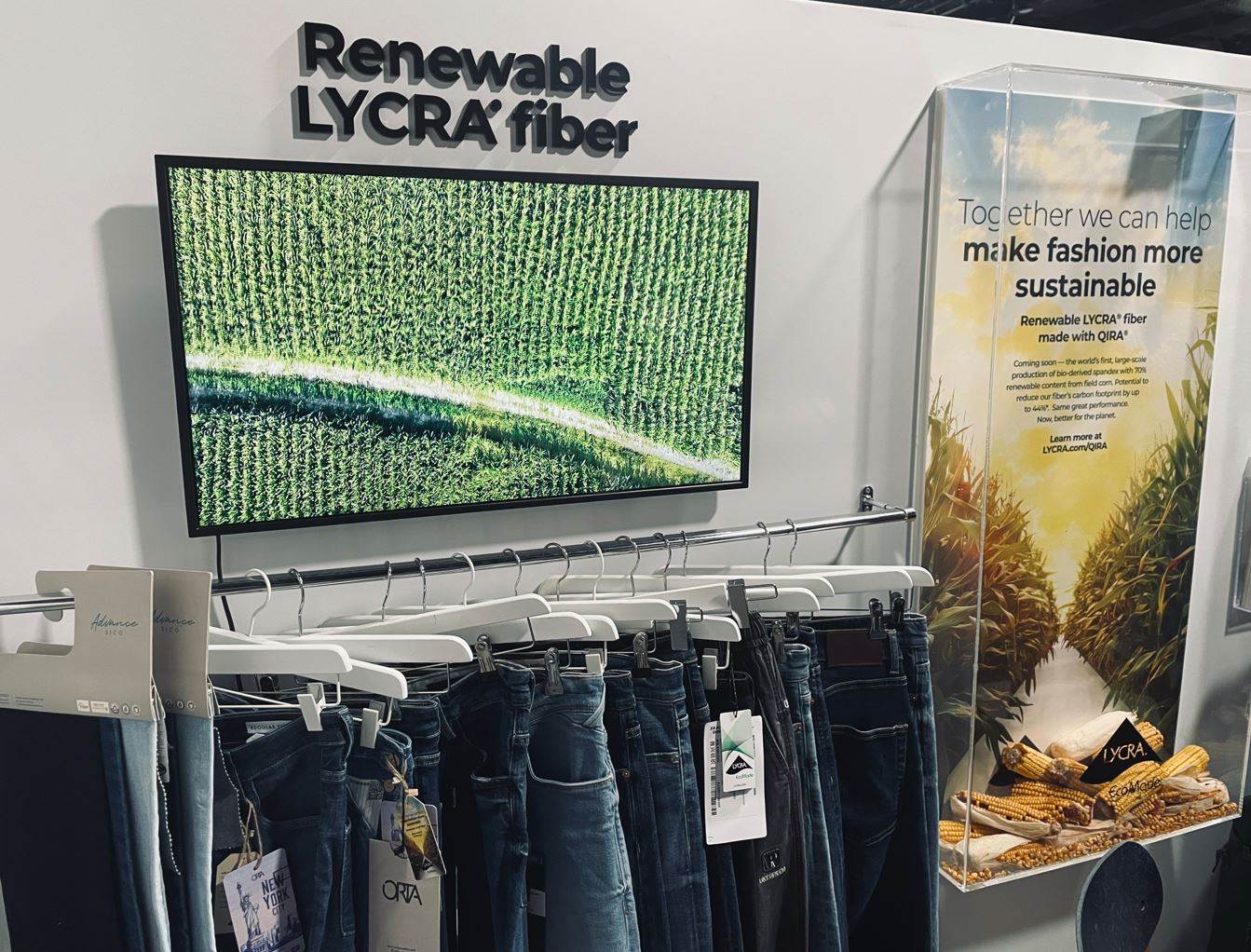Lycra to convert one-third of elastane to bio-derived next year

Fibre supplier The Lycra Company will convert one-third of its elastane production over to its bio-derived offering by the middle of next year, with the aim of moving towards 100%.
Instead of the BDO – a building block of elastane – being made from petrochemicals, it will be made from the starch from industrial corn grown in the US. This makes up 70% of the elastane, reducing the carbon footprint by 44%, according to an initial lifecycle assessment.
The company is converting a large amount at once, otherwise it will be more expensive, following substantial investments in research and new infrastructure.
While the bio-based product will be slightly more expensive than the conventional product, the fact elastane only makes up around 2% of stretch denim fabrics means this should not greatly impact the cost of the material, said the company.
Lycra’s sustainability mission falls into three categories: moving away from petrochemicals as a raw material, contributing to garments that last longer, and recycling after use. It has recently proven it can extract elastane from a fabric at lab level through chemical recycling and respin it - but needs larger-scale research to support and expand this.
Helen Latham, a senior strategic account manager at Lycra, said: “Ten years ago, people thought it would be impossible to extract elastane from a fabric, partly because the molecular recipe of Lycra is different to the molecular recipe of Hysosung or any other elastanes. But we have proven we can do it. Long term, we will have to have chemical recycling factories locally.”
She confirmed the denim industry has had a positive reaction to the bio-derived Lycra as it is “so sustainability focused”.
Partner denim mills - Orta, AGI Denim, Artistic Milliners, Advance Denim, Seazon and Vicunha - had denims with the new bio-derived elastane on display at Kingpins Amsterdam in October, demonstrating that the performance and the manufacturing process is the same.
Read more about Lycra’s bio journey as part of ‘Natural progression’, on our Features page.










